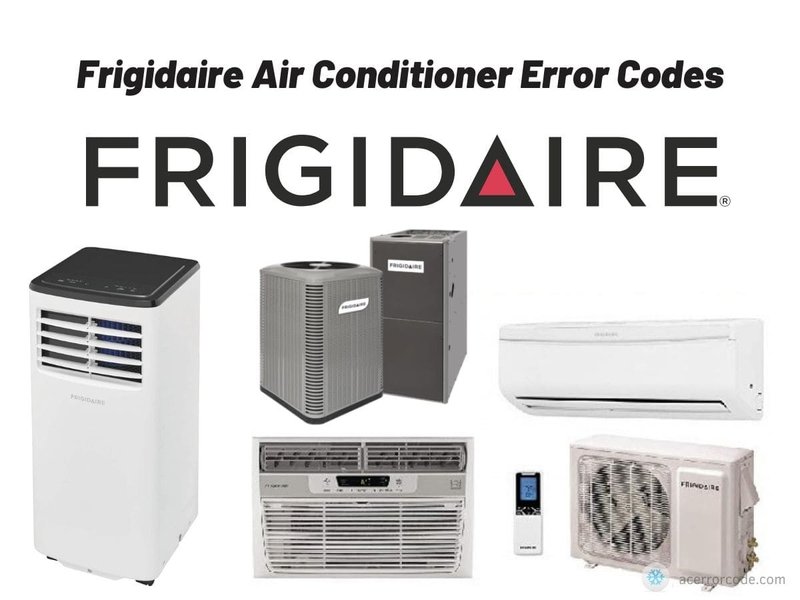
Error codes on appliances like air conditioners are essentially their way of communicating with you. Think of them as a distress signal, much like a text message your friend might send to say, “Hey, I need help!” The “UE” error code specifically is a cue from your Frigidaire air conditioner that something’s not quite right with the unit’s fan motor or fan blade. It’s like the unit’s saying, “Hold on, I’ve got a fan issue here!” But don’t worry—just because it’s flashing doesn’t mean you need to panic. With a little guidance, you can address the problem effectively.
Understanding the “UE” Error Code
So, what’s up with the “UE” error code? It primarily points to an issue related to the fan system within your Frigidaire air conditioner. Imagine your air conditioner is like a car, and the fan is its engine. If something’s amiss under the hood, the car won’t run smoothly. Similarly, a malfunctioning fan can prevent your air conditioner from operating correctly, impacting its ability to cool your space.
The fan in your air conditioner works by moving air over the evaporator coils, where it’s then cooled and circulated back into the room. If the fan isn’t working properly, warm air might not be cooled effectively. This could result in your space feeling unfamiliar with the cooling comfort you expect from your unit. You might notice that the air isn’t as cold, or perhaps you’re hearing strange noises that weren’t there before.
When faced with a “UE” error, it’s important to inspect whether the fan is obstructed by debris or if there’s physical damage to the blades. Sometimes, something as simple as a piece of paper or dust bunnies caught in the fan housing can trigger this error. By keeping the area clear and performing regular checks, you can often prevent this error from popping up.
Common Causes of the “UE” Error
What’s causing this pesky “UE” code, anyway? Think of it as trying to pinpoint why your favorite gadget isn’t charging. Sometimes the problem is obvious—like a loose plug—while other times, it requires a bit more detective work. The most common culprit for the “UE” error is a blocked or jammed fan. Just like trying to run while tangled in a web of wires, a blocked fan can’t spin freely, which is essential for functionality.
Debris and dust build-up are frequent offenders. They can sneak into the crevices of your air conditioner over time, especially if the unit’s stationed in a particularly dusty area. Regularly cleaning the air filter and ensuring the surrounding area is free from clutter can greatly reduce the chance of a blockage. Also, be on the lookout for signs of wear and tear on the fan blades. If they’re bent or damaged, they might struggle to move correctly, causing the error code to flash.
Another potential issue could be the fan motor itself. Like a car engine that’s experienced wear over time, fan motors can eventually burn out. If that’s the case, you might need to consider calling in a professional or replacing the motor if you’re comfortable doing so. The key takeaway? Regular maintenance and a proactive approach can save you from dealing with more complex issues down the road.
Steps to Fix the “UE” Error
Alright, here’s the part where we roll up our sleeves. If you’re ready to tackle this “UE” error, here are some steps you can take. First things first: safety! Always ensure your air conditioner is turned off and unplugged before you begin any troubleshooting. You wouldn’t want to tinker with a device that’s actively connected to an electrical source.
Once you’re safely ready, check the air filter. A clogged filter can lead to reduced airflow, causing the fan to work overtime and potentially triggering that error code. Cleaning or replacing the filter could be a simple solution that makes a world of difference. Next, focus your attention on the fan blades. Make sure they’re free from any physical obstructions and inspect them for any signs of damage.
Still seeing the “UE” code after your initial checks? It might be time to look at the fan motor. This is where things can get a tad technical, so if you’re not comfortable, reaching out to a professional is a smart move. A technician can confirm whether the motor needs repair or replacement. And if everything else is in check, a glitch in the electronic control board might be at play, which is definitely a job for the pros.
Preventative Tips and Final Thoughts
To keep your Frigidaire air conditioner running smoothly and avoid future “UE” errors, regular maintenance is key. Think of it like tuning up your car—you wouldn’t skip oil changes, right? By routinely cleaning the air filter and checking for debris around the fan area, you can extend the life of your unit and keep it running efficiently.
Additionally, pay attention to the environment where your air conditioner is installed. Keeping the area dust-free and ensuring it’s not situated near objects that might shed debris can go a long way. And don’t forget about the fan motor. If you notice the unit making unusual noises or the fan not spinning as it should, addressing it early can prevent more significant issues later.
In conclusion, while the “UE” error code might initially cause a bit of worry, approaching it with a step-by-step mindset can help you resolve it without too much fuss. Regular upkeep and a little care can ensure your air conditioner remains your reliable companion during those hot summer months. If you ever feel out of depth, remember, calling in a professional is always a solid option. Happy cooling!